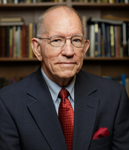That which holds the mind is that which molds the life.
That which holds the mind as conscious religious conviction
is that which molds the life with conscious religious power.
Although his readers already knew the truth and were established in it, Peter wanted to strengthen certain truths by conscious articulation, which would then serve as a vivid and perpetual reminder to them (2 Peter 1:12, 15).
Wherefore I shall be ready always
to put you in remembrance of these things,though ye know them
and are established in the truth which is with you;and I think it right, as long as I am in this tabernacle,
to stir you up by putting you in remembrance;knowing that the putting off of my tabernacle cometh swiftly,
even as our Lord Jesus Christ signified unto me.Yea, I will give diligence at every time
that ye may be able after my decease to call these things to remembrance.
In setting forth the terms of His covenantal relationship with His people, God
sounded this same note again and again and again (Deuteronomy 4:9, 23-25; 6:10-12; 8:11-19).
The passing of time makes it easy to forget what we should remember (Deuteronomy 4:9, 23-25).
Only take heed to thyself, and keep thy soul diligently,
lest thou forget the things which thine eyes saw,
and lest they depart from thy heart, all the days of thy life…Take heed unto yourselves,
lest ye forget the covenant of the Lord your God……when thou shalt beget children and children’s children
and ye shall have been long in the land, and shall corrupt yourselves.
Prosperity and respectability make it easy to forget what we should remember:
away from the constant reminders of our utter dependence upon God, we are in
danger of forgetting Him (Deuteronomy 6:10-12).
It shall be, when the Lord thy God shall bring thee
into the land which He sware unto thy fathers, …to give thee,great and goodly cities, which thou buildest not;
and houses full of all good things, which thou filledst not;
and cisterns hewn out, which thou hewedst not;
vineyards and olive trees, which thou plantest not;
and thou shalt eat and be full,
then beware lest thou forget the Lord….
Forgetfulness leads to self-confidence (Deuteronomy 8:11-12, 14, 17-18).
Beware lest thou forget the Lord thy God,
…lest, when thou hast eaten and art full,
…then thy heart be lifted up, and thou say in thy heart,My power and the might of my hand hath gotten me this wealth;
but thou shalt remember the Lord thy God,
for it is He that giveth thee power to get wealth,
that He may establish His covenant which He sware unto thy fathers,
as at this day.
Forgetfulness leads to idolatry: you will never be able to corrupt yourself in the
making of false gods, until you forget Who the living God is (Deuteronomy 4:23, 25).
Take heed unto yourselves,
lest ye forget the covenant of the Lord your God,
which He made with you,
and make you a graven image
in the form of anything which the Lord thy God hath forbidden thee,
…and shall corrupt yourselves.
Forgetfulness leads to unbelief—repudiation—utter rejection.
What is believed over a long period of time is assumed to be true;
what is assumed to be true is then not articulated;
what is not articulated is not remembered—is forgotten.What is forgotten is no longer believed;
what is no longer believed is no longer cherished;
what is no longer cherished
is ultimately put on the junk heap of unbelief and utter rejection.
Even though we know the truth and are established in it, it may begin to slip out
of the room of conscious articulation, into the limbo of forgetfulness.
Some truths that perhaps once made us weep with joy, we now nod to, with
a bland acquiescence. Principles for which we once laid our reputation, our
friendships, on the line, we still hold; but we wouldn’t lose much sweat over them.
Peter wanted to stir up his readers’ minds by way of conscious remembrance.
God said again and again to Israel,
Lest ye forget!
Oh, may God confirm us—and, as we’re stirred up by way of remembrance, give
to us a fresh note of sanctified militance—in our love of, and commitment to, the
truths that must comprise the body of our confession, as we say,
Here we stand!
Adapted from the series of sermons Here We Stand by Albert N. Martin.
© 2012 All rights reserved.

